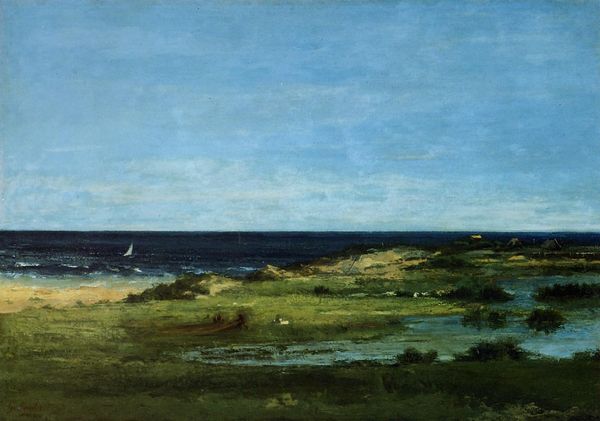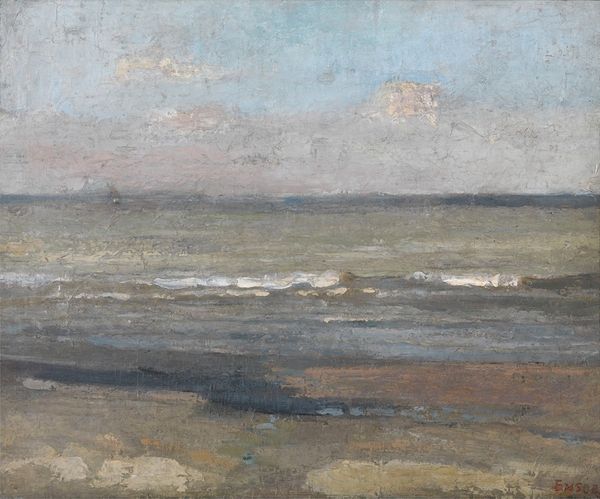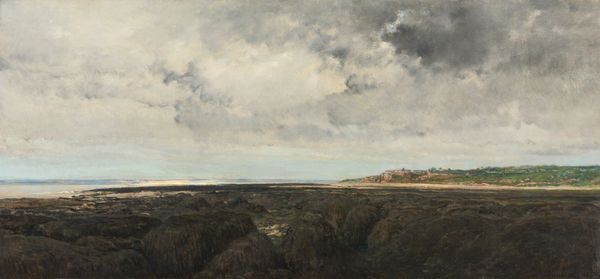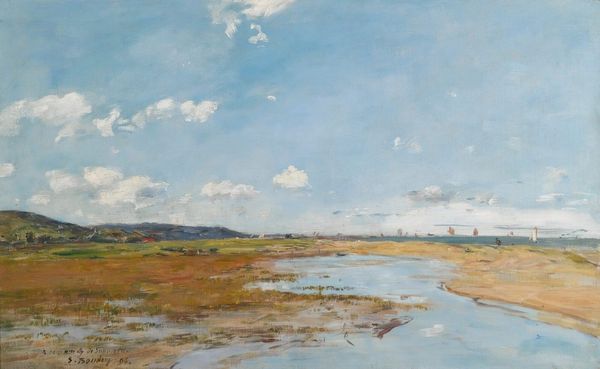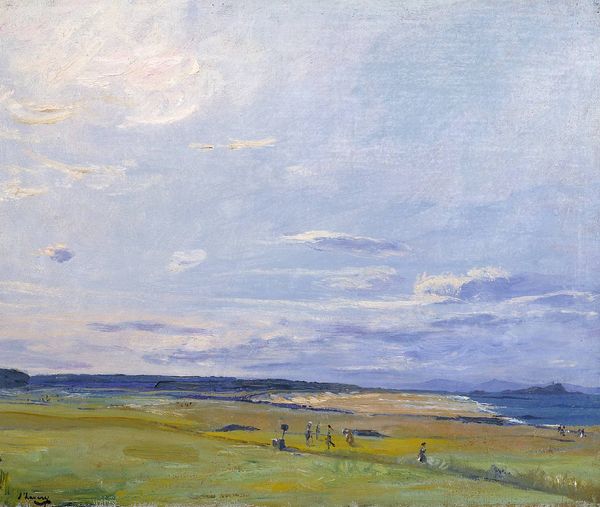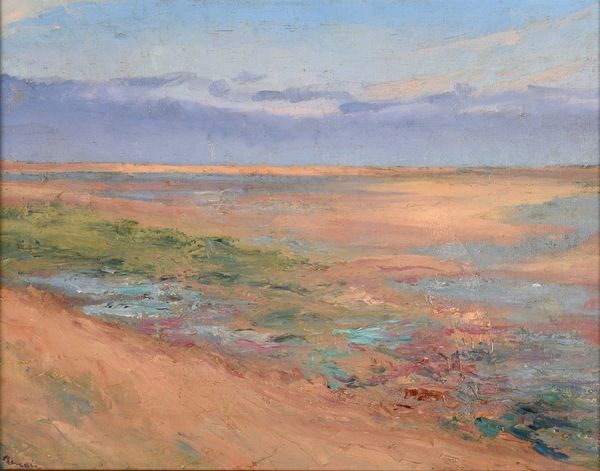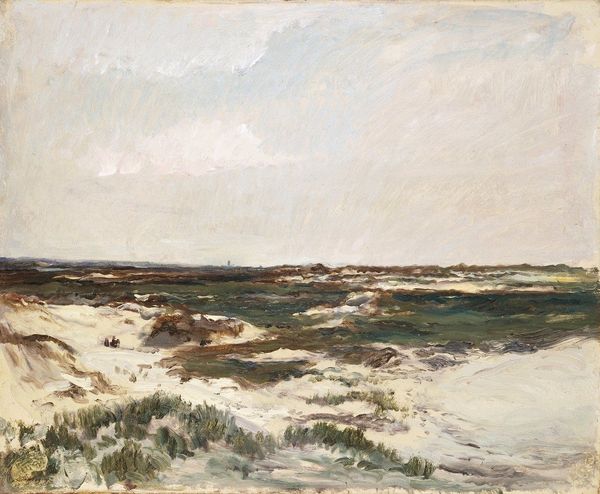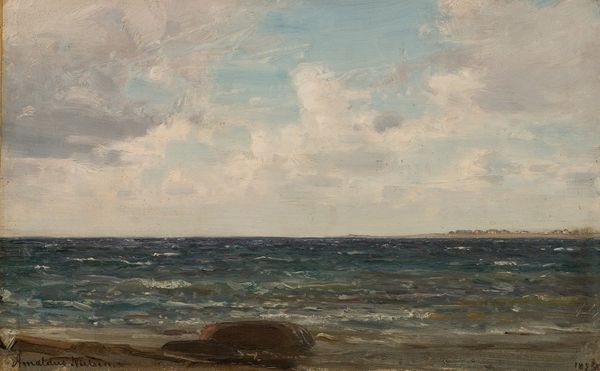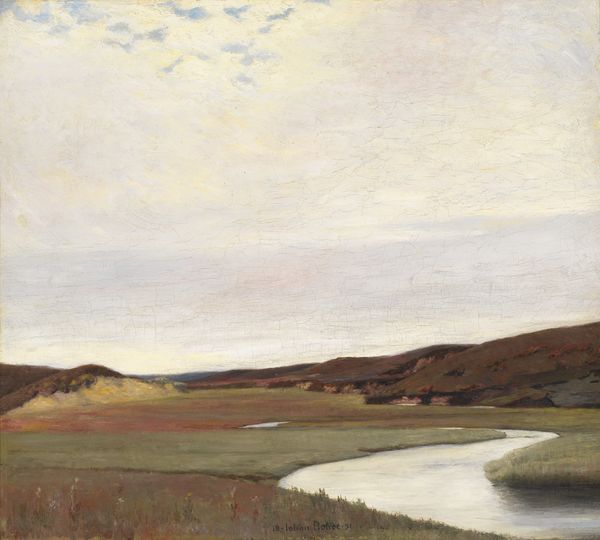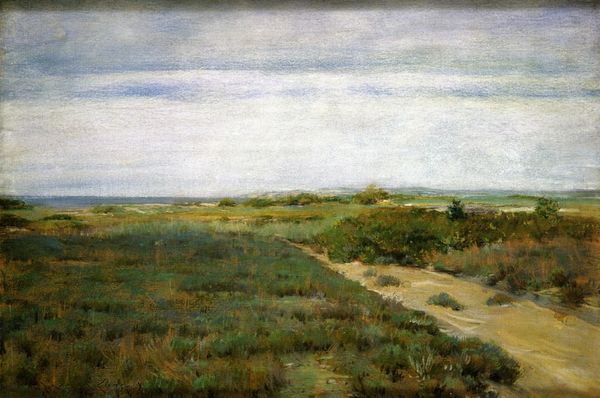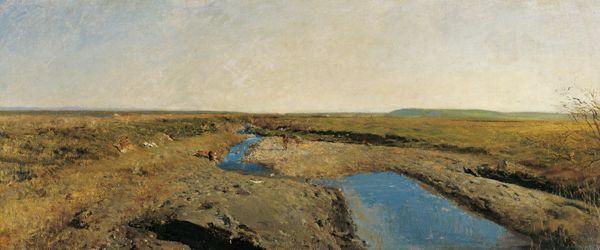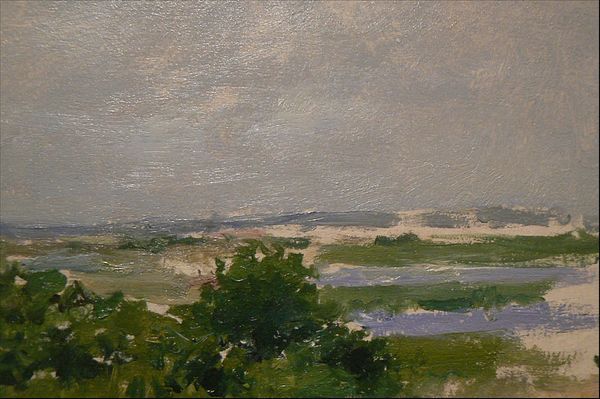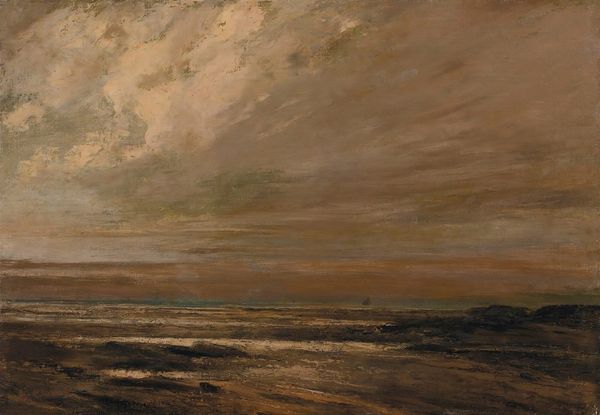
painting, plein-air, oil-paint
#
painting
#
plein-air
#
oil-paint
#
landscape
#
oil painting
#
seascape
#
realism
Copyright: Public Domain: Artvee
Curator: Here we have “Seascape,” an oil painting attributed to Gustave Courbet. While the exact date is unknown, it exemplifies his plein-air approach to landscape painting. What strikes you first about it? Editor: Oh, the quiet drama. It's like nature holding its breath before a storm, you know? That moody, steel-blue water against the hopeful light of the sky. It’s got a stillness, but you feel the energy underneath. Curator: Indeed. Courbet's realism sought to capture the unvarnished truth of the visible world, rejecting romantic idealism. His focus here isn't a grand narrative but the immediate experience of this particular place and time. Editor: Yeah, but it's more than just "truth," right? There's a definite vibe. It's solitary. Almost melancholic. Like being the only person on earth watching the sea churn. And those tiny boats in the distance...are they going somewhere or just lost? Curator: The painting's horizontality and the muted color palette certainly contribute to that mood. Consider Courbet's position within the social and artistic landscape of his time. This focus on everyday life challenged the academic tradition, pushing art toward democratic representation. Editor: Democratic? You see democracy in muddy grass and grey skies? For me it feels timeless. Like looking at a dream of the ocean that anyone could have, regardless of politics. A primal, elemental dream, really. Curator: Interesting. The lack of idealization aligns with democratic principles—valuing the mundane. Courbet, after all, was politically active. The ocean, historically, also reflects evolving social values and our relationship to the natural world. Editor: That's quite a reach, but sure, I get the connection to Courbet's socio-political inclinations, I just keep coming back to the light and how it shifts my attention across the landscape. How can brushstrokes carry that much emotional weight, you know? It feels honest, if an emotion can be. Curator: And that honesty was part of Courbet's project—to portray the world as he saw it, absent embellishment. Looking closely, one sees not photographic accuracy, but the artist's hand, a direct trace of his vision, offering not just a scene, but a point of view. Editor: Well, thanks. Now I'm not sure whether to ponder the social impact of brushstrokes or just go sit by the ocean and contemplate the meaninglessness of it all. It's powerful either way.
Comments
No comments
Be the first to comment and join the conversation on the ultimate creative platform.
